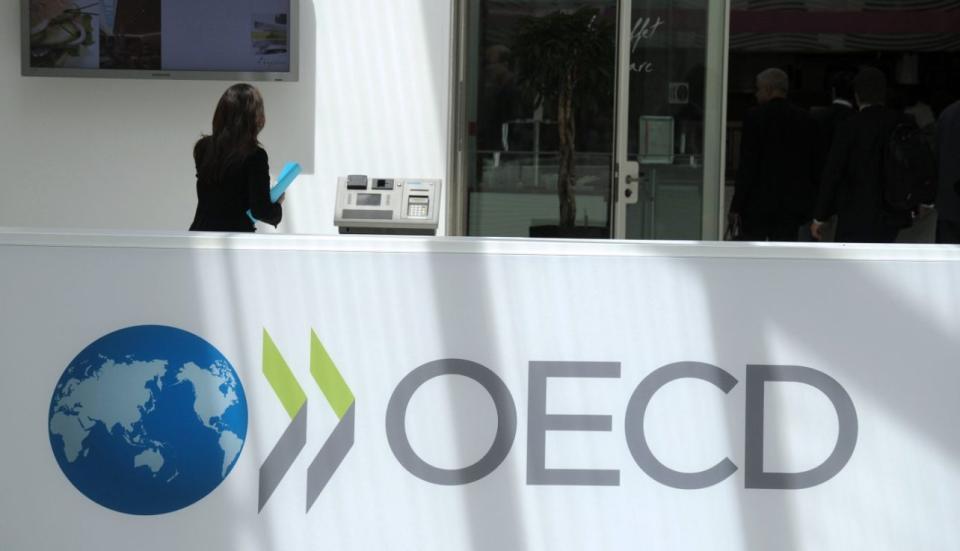UK set to face ‘sluggish’ growth in the face of sticky inflation and Bank of England interest rate hikes

The UK could face “sluggish” growth for the next two years as the impact of the Bank of England’s interest rate hikes continue to weigh on the economy, new forecasts have shown.
In its latest economic outlook, the Organisation for Economic Co-operation and Development (OECD) downgraded its growth forecasts for the UK economy, predicting the UK would grow 0.4 per cent in 2024.
This was a downgrade from its previous estimate of 0.7 per cent and the second slowest in the G7, behind only Germany.
Next year growth will pick up to around one per cent, the OECD said, the weakest among G7 economies.
“This forecast is not particularly surprising given our priority for the last year has been to tackle inflation with higher interest rates,” Chancellor Jeremy Hunt said.
The OECD said the UK’s “more moderate upturn” reflects tighter policy on both the monetary and fiscal side as well as “somewhat higher inflation” this year.
Strong real wage growth is expected to lead to a “modest pick-up” in consumption but this would also contribute to “persistent” services inflation. The Paris-based organisation forecast service price pressures would keep core inflation at 3.3 per cent this year and 2.5 per cent next.
“Sticky services price inflation and fiscal drag will continue to weigh on consumers’ purchasing power, soft external demand will constrain trade growth, and policy uncertainty will impede business investment,” it said.
To generate stronger growth, the OECD said the UK needed to further advance on supply-side reforms, which boost the potential output of an economy, while “avoiding policy churn”. In particular, it highlighted measures to address “economic inactivity and stagnant investment”.
Nevertheless, the OECD praised some of the government’s measures, such as the permanent full-expensing allowance for business investment and cuts to national insurance.
“The measures are expected to increase potential output by providing stronger work and investment incentives and, together with supply-side initiatives such as the childcare expansion, could help to lower fiscal pressures in the longer run,” it said.
However, the tax cuts would not prevent the tax burden rising to “historic highs” of around 37 per cent of GDP, largely due to frozen tax thresholds.
Public debt is expected to remain at historic highs and the OECD suggested reforms to property taxation as a way to rebuild fiscal buffers. It suggested re-evaluating council tax bands, which have not been updated since the 1990s, and scrapping stamp duty, to promote efficiency.
Global GDP is expected to grow by 3.1 per cent this year, unchanged from 2023.

 Yahoo Finance
Yahoo Finance 